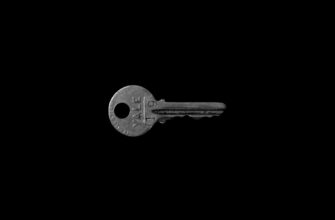🚀 Claim Your $RESOLV Airdrop Now!
💰 Big Profits. Massive Gains.
🎉 Join the $RESOLV Airdrop and step into the future of crypto!
⏳ You have 1 month to claim your tokens after registration.
🤑 This could be your path to financial freedom — don’t miss out!
🌟 Early users get exclusive access to the $RESOLV drop!
🔥 No cost to claim — only pure opportunity.
💼 Be among the first and watch your wallet grow!
- Why Non-KYC Crypto Wallet Protection Matters
- Essential Security Practices for Non-KYC Wallets
- Hardware Wallets: Your First Line of Defense
- Privacy-Focused Cryptocurrencies
- Offline Key Management Strategies
- Avoiding Digital Threats: Phishing & Malware
- Network Protection: VPNs and Tor
- FAQ: Protecting Your Crypto Wallet Without KYC
- Conclusion: Embrace Financial Autonomy Securely
Why Non-KYC Crypto Wallet Protection Matters
In an era of increasing financial surveillance, protecting your cryptocurrency wallet without KYC (Know Your Customer) verification has become essential for privacy-conscious users. Non-KYC methods prioritize anonymity by eliminating identity-linked exchanges, reducing exposure to data breaches and government oversight. This guide explores practical, legal strategies to secure your digital assets while maintaining complete financial sovereignty.
Essential Security Practices for Non-KYC Wallets
Implement these foundational measures to create a robust security framework:
- Generate Strong Passphrases: Use 12-24 random words instead of simple passwords
- Enable Multi-Factor Authentication (MFA): Require biometrics or hardware keys for wallet access
- Regular Software Updates: Patch vulnerabilities in wallet apps and operating systems
- Transaction Whitelisting: Restrict withdrawals to pre-approved addresses only
Hardware Wallets: Your First Line of Defense
Cold storage devices like Ledger or Trezor provide the gold standard for non-KYC protection. These offline wallets:
- Keep private keys isolated from internet-connected devices
- Require physical confirmation for transactions
- Support over 1,000 cryptocurrencies without identity verification
- Feature tamper-proof secure elements to resist hacking
Always purchase hardware wallets directly from manufacturers to avoid supply chain tampering.
Privacy-Focused Cryptocurrencies
Certain blockchains enhance anonymity by design. Consider these KYC-free options:
- Monero (XMR): Uses ring signatures and stealth addresses to obscure transactions
- Zcash (ZEC): Offers shielded transactions with zero-knowledge proofs
- Pirate Chain (ARRR): Delays transaction visibility through delayed proof-of-work
Offline Key Management Strategies
Protect your recovery phrases using these physical methods:
- Metal Seed Plates: Fire/water-resistant titanium backups (e.g., Cryptosteel)
- Geographically Distributed Paper Wallets: Split phrases across multiple secure locations
- Memorization Techniques: Create mental maps for partial phrase retention
- Encrypted USB Drives: Store digital copies with VeraCrypt protection
Avoiding Digital Threats: Phishing & Malware
Combat online risks with these precautions:
- Never click wallet links in emails/DMs – manually type URLs
- Use dedicated devices for crypto transactions only
- Install reputable antivirus software with real-time scanning
- Verify wallet addresses via QR codes instead of copy-pasting
Network Protection: VPNs and Tor
Conceal your IP address during transactions:
- VPN Selection Criteria: No-logs policy, RAM-only servers, and cryptocurrency payment options
- Tor Browser Integration: Route transactions through multiple encrypted nodes
- Router-Level Protection: Install VPNs directly on your network hardware
FAQ: Protecting Your Crypto Wallet Without KYC
Q: Is non-KYC crypto usage legal?
A: Yes, in most jurisdictions. Privacy protection differs from illegal activity – consult local regulations.
Q: Can I recover funds if I lose my hardware wallet?
A: Absolutely. Your recovery phrase (not the device) controls access. Store it securely offline.
Q: How often should I rotate wallet addresses?
A: For maximum privacy, generate new receiving addresses for every transaction using HD wallets.
Q: Are decentralized exchanges (DEXs) safer than CEXs for non-KYC?
A: Generally yes. DEXs like Uniswap don’t hold your assets or require ID verification.
Q: What’s the biggest risk in non-KYC wallet protection?
A: User error. Losing keys or falling for phishing scams remains the primary vulnerability.
Conclusion: Embrace Financial Autonomy Securely
Protecting your crypto wallet without KYC requires layered security approaches rather than a single solution. By combining hardware storage, privacy coins, network anonymity tools, and vigilant practices, you can maintain true financial sovereignty. Remember: In decentralized finance, you are the bank – implement these strategies to become your most reliable security system.
🚀 Claim Your $RESOLV Airdrop Now!
💰 Big Profits. Massive Gains.
🎉 Join the $RESOLV Airdrop and step into the future of crypto!
⏳ You have 1 month to claim your tokens after registration.
🤑 This could be your path to financial freedom — don’t miss out!
🌟 Early users get exclusive access to the $RESOLV drop!
🔥 No cost to claim — only pure opportunity.
💼 Be among the first and watch your wallet grow!








